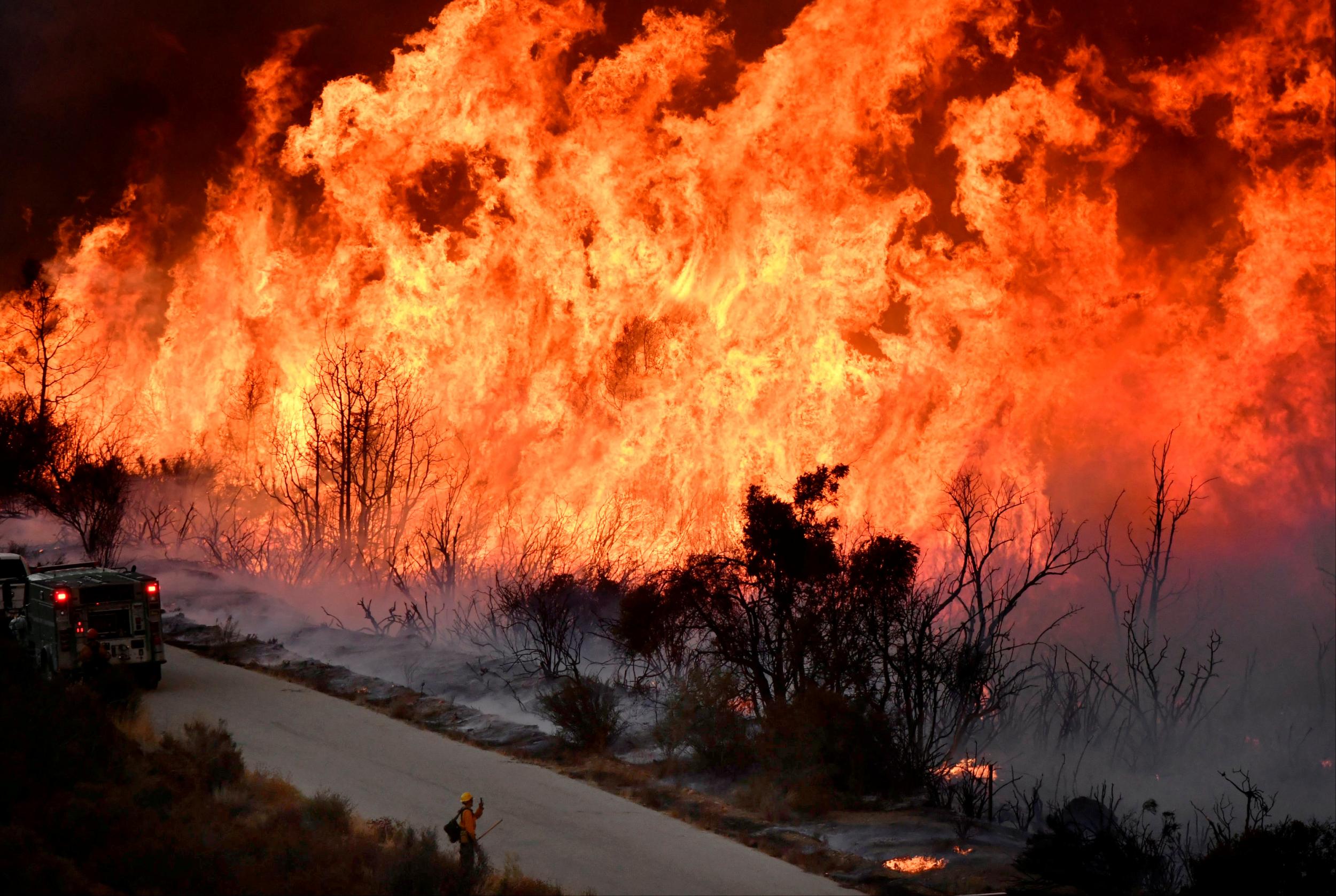First landlocked US city sues oil industry over climate change adaptation costs
Boulder is facing $100 million in extra climate change costs over the next three decades

A landlocked city is suing two giants of the oil and gas industry for the first time in an effort to force them to help pay for the dramatic costs associated with climate change adaptation.
The city of Boulder Colorado — alongside Boulder County and San Miguel County— is suing Exxon and Suncor to recover costs from damages that they say the oil and gas industry knowingly caused by not being upfront about the dangers of climate change for decades.
The Colorado lawsuit marks the 10th time that a city in the United States has sued the oil and gas industry in the past six months, with the other nine filed by cities on the coasts facing down rising sea levels.
“The average person should know we’re finally dealing with the costs of climate change. Irrespective of weather, this is a big concern to you,” Richard Wiles, the executive director of the Centre for Climate Integrity, told The Independent.
“If your city or state is suddenly facing hundreds of millions of dollars — or billions of dollars — of adaptation costs over the next several years, that puts climate change in a different light. It suddenly becomes very real to you.”
Boulder, situated northwest of Denver at the foothills of the Rocky Mountains, is facing unique challenges from climate change compared to the coastal communities that are tasked with mitigating coastal flooding impacts and other dangers related to rising sea levels. The region is instead expecting less-tangible climate change impacts — from increased likelihood of wildfires brought on by shorter snowpack seasons to the simple fact that things are getting hotter.
“The main thing that is driving all of the risks that Boulder is talking about is still undeniably heat. Heat is what is behind the impacts they describe,” Mr Wiles said. “They’re talking about drought, about wildfires, about water availability. But it all comes down to heat.”
The adaptation process will take a range of forms as the region gets ready for the arriving impacts of climate change. They may include things like repaving roads that are better suited for the rising temperatures, coming up with plans and infrastructure to handle droughts and dry forests, and even retrofitting buildings for air conditioning so that people can stay safe during heat waves, which are expected to be longer going forward.
10 photographs to show to anyone who doesn't believe in climate change
Show all 10All of that will cost the communities more than $100 million in extra spending beyond normal expenses on similar projects over the next three decades, according to a release from the group.
“Our communities and our taxpayers should not shoulder the cost of climate change adaptation alone. These oil companies need to pay their fair share,” Suzanne Jones, the mayor of the City of Boulder, said in a statement.
Exxon’s knowledge of climate change risks dates back to at least the 1970s, and the company is currently fighting probes by several attorneys general including those in New York and Massachusetts to determine if they misled their shareholders and the public about the dangers of burning fossil fuels for the environment.
The company has in the past said that they did not act in any way inconsistently with the knowledge about the climate change risks. Neither Exxon or Suncor responded to requests for comment on this story.
The previous nine cities to file suit against the oil industry to try and get help funding their climate change adaptation efforts were all in New York and California.
Subscribe to Independent Premium to bookmark this article
Want to bookmark your favourite articles and stories to read or reference later? Start your Independent Premium subscription today.

Join our commenting forum
Join thought-provoking conversations, follow other Independent readers and see their replies